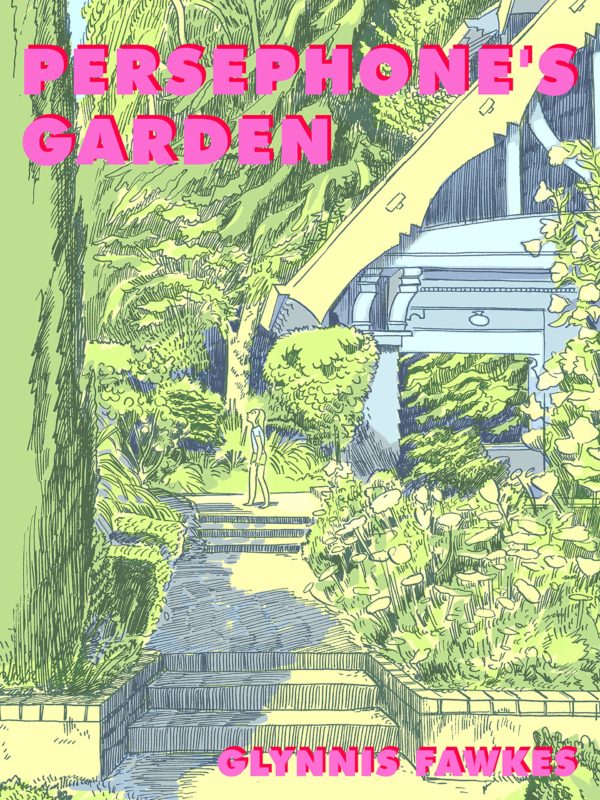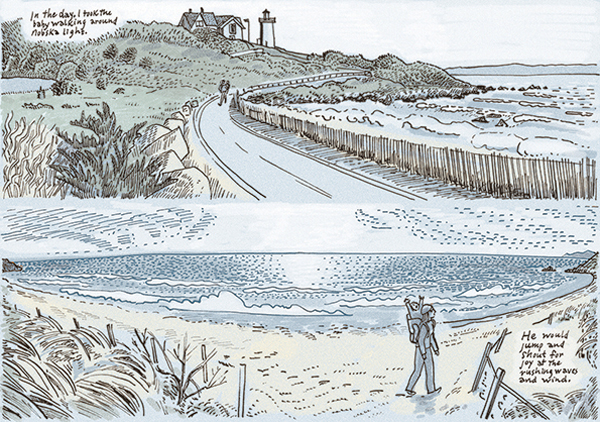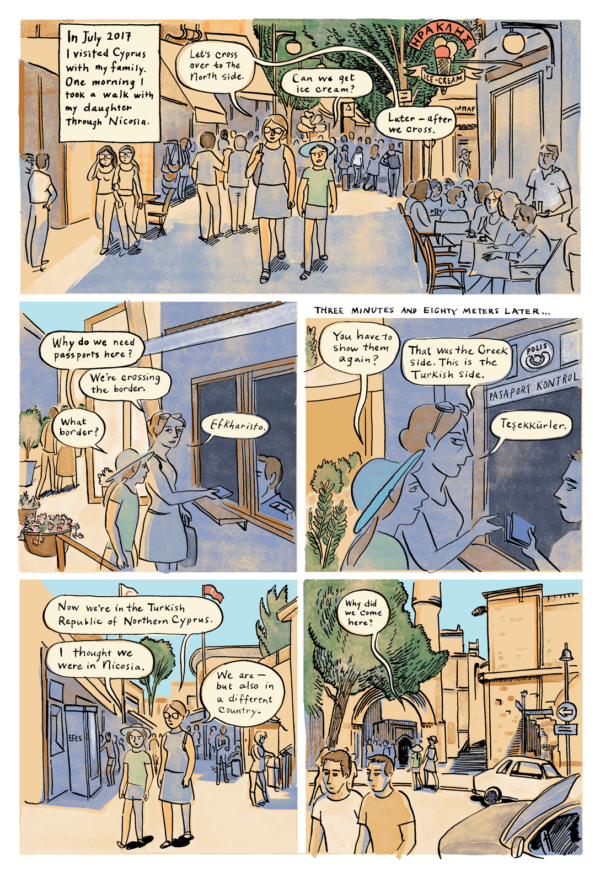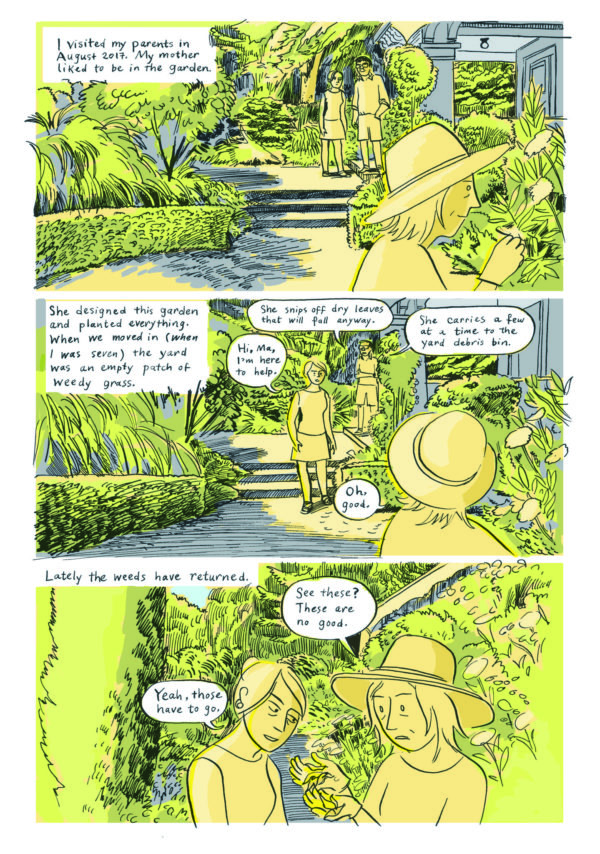Persephone’s Garden
By Glynnis Fawkes
Secret Acres
Making its debut at SPX this year, Glynnis Fawkes names this collection of diary comics that were created over a seven year span of her life after a garden that doesn’t exist. Persephone’s Garden, she points out, is not even in the Persephone myth, though Persephone does pick flowers in that story. Fawkes’ mother does have a garden, though, and it becomes the location for some of the book’s central themes.
The myth itself is concerned with the abduction of a daughter — that is, Persephone — and the effort of a mother — that is, Demeter — to gain back access to her daughter, and in the introduction, Fawkes makes clear that she can feel identification with both women, largely because of the passage of time. That’s the other important part of the Persephone myth. By explaining the seasons, it offers a dramatic reason that the passing of time is marked by visual changes all around us. We can see time pass, and it’s because of Persephone’s abduction that we are able to do so.
But you can see time pass in other ways and Fawkes depicts those in Persephone’s Garden. One is in the expanse of your own life, what you do with it, what you have time for, energy for. Another is the growth of children, either your own or somebody else’s that you might have in your life. Fawkes has her own, and in her depictions, you might say they are spirited, often sparring with their mother over minute details of sometimes grand adventures, sometimes smaller moments. Fawkes comes on as a headstrong person who knows what she wants, and she’s raised two kids, particularly her daughter Helen, who challenges her mother on everything, including the decision to name her Helen.
Fawkes commits many home scenes with the kids to the pages of Persephone’s Garden, but also gives careful renderings to places they visit. Early on in the book she recounts her work in Greece as an archaeological illustrator, whose job it is to draw the findings in order to record the specifications in a way that’s of different use than photography. In other words, her job is to capture the relics of the past with extreme accuracy.
That’s a bit what she’s doing in Persephone’s Garden, though at the moment she creates them, the past doesn’t exist and it’s all the present, so the interpretive aspect of archaeology isn’t part of these texts. But gathered together they create an interesting picture. Fawkes herself comes off as immensely intelligent and curious, and she greets travels as opportunities to investigate far corners. Her children, however, are combative to the idea of travel, of museums, of places that aren’t home in general, to the point where they refuse participation during a later trip to Cyprus. She craves the unfamiliar and loves the unknown, while her children want nothing to do with it. They’re more happy at home in the intimate exchanges that Fawkes has later in the book.
Juxtapose that with Fawkes’ visit to her mother, who has Alzheimers. A frustrating conversation filled with a repeated question results from her mother’s inability to recognize her. Her mother is constantly surrounded by the unfamiliar and forever facing the unknown by no choice of her own. Much like Fawkes’ book, she lives an eternal present. In the final pieces in the book, Fawkes and family visit her parents, which allows Fawkes to recount her childhood and revisit the house and forest she grew up in.
It’s part of a coming to terms with how Alzheimers and old age are turning her own place of comfort into a finite possibility. It also gives her the chance to examine how even when everything is wiped away from her mother’s mind, there is still a connection, possibly acting on an emotional memory that lurks beneath the tangible surface of feeling. One day, Fawkes makes plain, this might be the connection she has with her own children.
For now, Fawkes is faced with the prospect of eventually having to go through her parents’ creative work, for that is what is going to remain of them after they pass on. It’s an echo of her archaeological work and a foreshadowing of what her children will face someday with Fawkes’ work. In this way, Persephone’s Garden comes full circle, and the connections have been made. Time passes, mothers and daughters are separated, and what we create is how we live on. As with Demeter, there are things we can do to help us cope with all kinds of loss that comes when time keeps moving.











